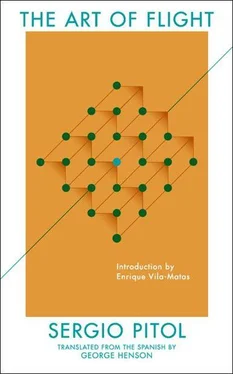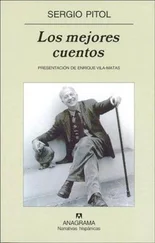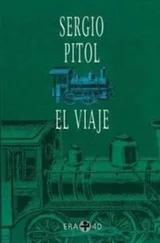In this world where dignity and greatness are mere appearances, the desire to be someone grows stronger in Gabriel. They may scoff at his aspirations for rank and honor, but no one will stop him. Gabriel senses that he and those like him who were born and raised in the midst of the harshest reality will eventually survive the disaster. It will be they who steer the ship we see on the verge of capsizing. Galdós seems to give his hero wings in order to soar. Forty years later, when he writes the final Episodes, his vision will be more skeptical, but, at the same time, more certain.
Galdós anticipates a device that Franz Werfel will employ successfully in this century in Juarez and Maximilian , a play in which, from beginning to end, he was able to make the presence of the Mexican hero felt without his ever appearing on the scene. In each of the chapters of The Court of Carlos IV the name of the most powerful man in Spain is mentioned; he is damned and cursed forever; we know the places he visits, the comments he makes, when he arrives to the Palace, and even what he eats, but he never appears. He is an invisible man who for many years has pulled, at his discretion and pleasure, the strings of the kingdom only to become ensnared in the tangled web of his own making. His fate, like that of the King and Queen, like that of the Spain we visited, is sealed. The curtain is about to fall. Other dramas, comedies, and farces will be performed. Other characters will be the protagonists. Another chorus, riotous, monstrous and generous, naive and cunning, clueless, intuitive, manipulated, mean and tender, is about to enter the stage. Forever a giant. The Spanish people! In the Episodes that follow, their presence will be definitive.
Xalapa, September 1994

13 Translated by Clara Bell
14 Translated by Maria G. Tomsech
15 Translated by Caryl Emerson
Cyril Connolly asserts that the writer must aspire to write a work of genius. Otherwise, he is lost. This preemptory requirement is, of course, stimulating, a crack of the whip to banish idleness, conformity, the temptation of easiness. But it must arrive when the time is right if he does not want to herd the sheep toward the wolf. Whosoever seeks his soul will lose it, say the Gospels. Did the young Joyce know as he was struggling with the Dubliners that Ulysses lay in his future? Were Mann and Kafka aware of what destiny held for them when they were writing their first stories? Did the young Cervantes, when writing his first lines of verse, which were presumably mediocre, imagine himself as the immortal author of the Spanish language? It occurs to me that one could interpret Connolly’s assertion in a less dramatic way: Every writer should from the beginning remain faithful to his potential and try to refine it; have the greatest respect for language, keep it alive, update it if possible; not make concessions to anyone, least of all to power or to trends; and contemplate in his work the boldest challenges it is possible to conceive. At least that was the way Chekhov came to be the great writer he is. He wrote at first, when he noticed his facility for inventing stories, to earn money to support his family; it took a few years to discover that being a writer required more than relating a funny anecdote or a dramatic episode. Daily practice made him aware of the possibilities of the craft. He was always faithful to his intuition, exceptionally demanding of himself, indifferent to the judgment of others, alien to any temptation of power, to all forms of excess or falsehood, and indefatigable in the pursuit of a personal narrative method. As a result, he bequeathed to humanity a handful of brilliant works.
The Seagull marks the transformation of the contemporary theater. This is a beautiful and moving work that no one was able to understand in its first performances. It breaks sharply with Russian tradition. And not just with Russian tradition; today’s theater, especially the Anglo-Saxon, is still in its debt. In the play, which is set at the end of the nineteenth century, there is a young poet, Treplieff, who does his utmost to create a new literary language; Treplieff belongs to the symbolist literary school. Chekhov makes use of the classical device of theater within theater, and includes in The Seagull the performance of a monologue by Treplieff, a verbal delirium, a distortion that is not a recreation but a parody of symbolist language. If Chekhov’s sympathy for the young poet and his plight are evident from the beginning to the end of the work, it is also true that his literary activity is treated with a slight disdain. A fragment of the monologue is included in the middle of the first act of The Seagull . A beautiful and aspiring actress, who embodies the “Spirit of the Universe,” delights in informing us that all living beings have been extinct for several thousand years and that the earth has not given birth to any new species. The Spirit of the Universe opens her mouth only every one hundred years to reveal the relentless struggle waged for centuries against the Devil, the King of Matter. She is convinced that the day will come when she will be able to defeat him. “After a fierce and obstinate battle,” the Spirit exclaims, “that could last many millennia, I will conquer the source of the Forces of Matter. Matter and Spirit will merge in glorious harmony, the earth will populate itself again, and the Kingdom of Universal Freedom will be born.” The monologue, as the reader has probably noticed, is tedious, naïve, and prosy. The constant use of abstractions, the contempt for real people and their trivial problems, the search for infinity, all correspond to Chekhov’s notion of symbolist literature. It is well known that he detested romanticism and distrusted the new school that was beginning to flourish in Russia. He saw symbolists as a new incarnation of the romantics. The symbolists never forgave Chekhov for that parody. He was considered an insignificant writer of local customs. He, however, considered himself a realist. Words like “realism” and “realist” are often discredited today; they are applied cautiously and rather derisively, and leave a sense of imprecision and exude an odor of vulgarity. In a conversation with Serena Vitale, Viktor Shklovsky declared shortly before he died: “The truth is I have never been able to understand what the term realism means, and I’m not talking just about socialist realism, just plain realism. It’s a useless designation that means nothing in literature!”
To be clear, when Chekhov defined himself as a realist writer, he did so with the same calm conviction with which Tolstoy and Dostoevsky accepted the term. For them and their contemporaries, the adjective had a precise meaning. Chekhov would undoubtedly be surprised to learn that there is not a single major essay today that does not linger on his work’s intense symbolic charge. The Seagull , where he parodied that current, is perhaps the most symbolist — from the very title! — of his dramas.
Even if Chekhov considered his literature to belong to the Russian realist tradition, he was aware of the fundamental differences between his work and that of his predecessors and contemporaries. His quests and intentions could not have been more dissimilar. The epic breath of Tolstoy, the spiritual exaltation of Dostoevsky, and the pathos of Andreyev were viscerally foreign to him. His work marks not only the end of a literary period; it also brings to a close a historic world. He is, as Vittorio Strada has accurately observed, a transitional writer situated between two worlds. Chekhov’s originality was disconcerting to his contemporaries and, during his early period, truly incomprehensible. “Even today,” the Italian critic adds, “he remains the most difficult writer in Russian literature, because under a maximum of apparent transparency lies hidden a core that resists all critical formulations.”
Читать дальше













